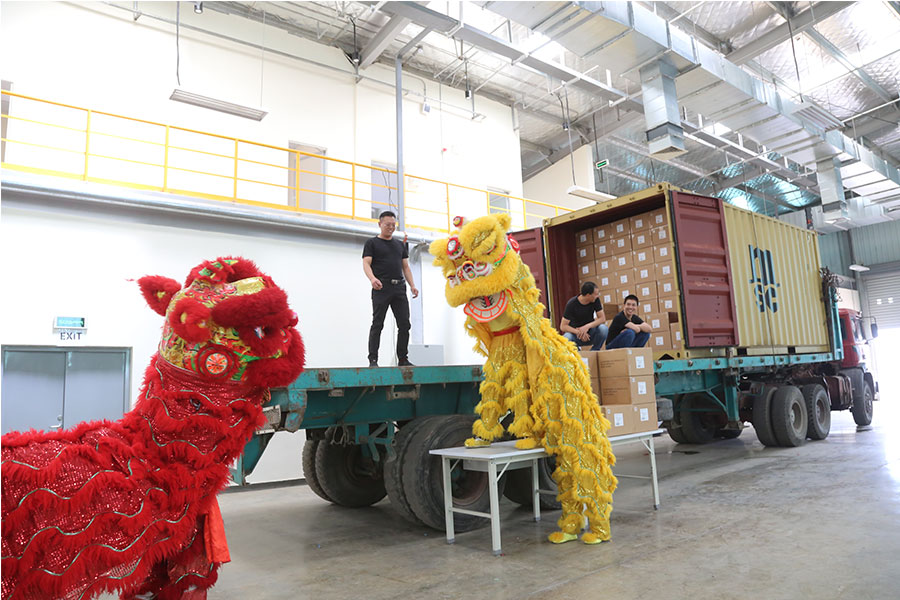
Radar |
Ethiopia's leather industry is facing a policy clash between government ministries with officials at the Ministry of Agriculture pushing to remove the export tax on raw hide and skin, while the Ministry of Industry fiercely opposes it. Agriculture officials argue that eliminating the tax will revive struggling producers and suppliers facing economic hardship due to inflation and plummeting prices.
Asmelash Berhe, director of dairy production at the Ministry, observed the environmental waste where hide suppliers went out of business for dwindling demand. He believes it would serve as an alternative plan for slow exports of leather and leather products, which have been irrepressibly declining for the past few years.
"There is a growing demand for hides and skins in regional countries," he said.
A study backing this argument was submitted to the Ministry of Finance, requesting reversal of the law. Ethiopia's policy measure on hide exports goes back to 2008, where 150pc tax was levied to discourage export without value addition and indirectly benefit manufacturing and processing industries. Following the study, officials from the Ministry of Industry were asked to provide feedback showing off major resistance.
Signed by Tarekegn Bululta, the state minister, they presented a counter-argument stressing the strain removing taxes would put on local manufacturers. Tarekegn stated that it goes against the import substitution campaign his Ministry is spearheading to incentivise local manufacturers. Leather and leather products accounted for 0.8pc of total merchandise exports that translated to 4.1 billion dollars earnings. However, with 18 operational tanneries, 21 footwear and 25 leather product manufacturers, subpar products have plagued the export earnings dropping threefold over the past five years.
According to Addis Ketema, leather and leather products head at the Ministry, the task of enhancing quality of hides through agriculture extensions and development strategies was entrusted to the Ministry of Agriculture. However, he believes the path officials have chosen is far from his Ministry's best interest.
Shortage of chemicals, low technology utilisation and quality supply of raw hides and skins are major factors undercutting the leather-manufacturing sector. Exporting raw hide and skin without added value would be the end for the leather industry, according to Ethiopia's Leather Exporters Association members. They voiced concerns through their president Redman Ashebir, citing the already struggling working conditions of leather manufacturers tethering on the brink of collapse.
"The industry won't survive," he said.
Ethiopia has the continent’s largest livestock population, with over 170 million cattle, sheep and goats. Last year's livestock output includes nearly 2.7 million cattle hides, 8.1 million sheepskins, and 7.5 million goatskins. However, the sector’s potential remains untapped, with nearly 60pc of the production costs arising from the hides’ price.
Operating in a 10,000Sqm land, Batu Tannery Plc, has been a leather exporter for the past 24 years. Tatek Yirga, general manager, said their market demand has declined by up to 60pc where US, China and Europe have been the major destinations for their products lessening their demand.
"The market trend is not on our side," he said.
Export market has consistently declined over the last four years from 122 million dollars to 32 million dollars earnings. Meanwhile, 737,436 dollars was obtained from hide and skin exports of 4,000tns to mainly Togo, Nigeria and Ghana, in the past five years.
Declining sales and inflation rate are immediate worries for Tizazu WoldeTsadik who has been supplying skins and hides for local factories. He observed a declining demand while a bulk of it is usually rejected by manufacturers for subpar quality. According to Tizazu, inadequate storage facilities have made preserving mechanisms difficult for a meagre profit margin of 10 Br with a hide while quality is usually undermined due to procedural neglect in pre and post slaughter process.
Addis Abeba Hide Suppliers Association, an umbrella for over 100 suppliers, has been advocating for duty-free advantages for the hide market. Birhanu Abate, president of the association, indicates that it has been a long-standing question of suppliers. The quality of the piece falls short of the standard required by discerning tanneries, while, Birhanu indicates that the hide exports won't require any efforts to struggle through pre and post-preservations.
The Ministry of Finance has yet to respond to the conflicted parties.
Mulay Weldu, tax policy director of the Ministry, stressed the social and economic impacts on both arguments need to be thought out before considering a decision. He said potential gains from exports of raw hides and skins and its effect on the leather industry will be assessed along with availing sufficient supplies for domestic manufacturers.
Another line of request surfaces from the Livestock Development Institute. An advocate for dairy and meat product exporters, the Institute has also asked for the re-consideration of the tax on behalf of meat exporters that gravitate towards including hide and skin in their portfolio. Last year, 93-million dollars worth of meat made it to the export market with Saudi Arabia, UAE, Qatar and Oman being the top destinations.
Gezahegn Dugase, market and investment head at the Institute, said the hides and skins are an afterthought for the eight exporters usually wasted with a low price.
"Meat exporters should also be allowed," he said.
Experts weigh in with caution and warn against a full removal of the tax on raw hide and skin exports. Solomon Getu, manager at a tannery in Uganda, is reserved about completely removing the export tax recalling a similar policy implemented decades ago that allowed hide exports. He argues it resulted in minimal revenue gains and discourages domestic value addition through leather processing.
Solomon cites Uganda's measures when faced with similar industry struggles, where authorities completely banned raw hide and skin exports which helped revive their domestic leather industry. However, Solomon does not advocate for a complete ban in Ethiopia. Instead, he proposes implementing temporary policy revisions allowing limited hide exports for a period of six months.
The expert stressed addressing the immediate concerns of domestic leather manufacturers. He believes the industry can be better equipped to handle a potential increase in raw hide exports if equipped with latest technologies, improved transportation and preservation methods.
PUBLISHED ON
Apr 06,2024 [ VOL
25 , NO
1249]

Radar |

My Opinion | Nov 23,2024

Fortune News | Apr 30,2021

Fortune News | Oct 20,2024

Radar | Mar 30,2019

Radar | Feb 05,2022

In-Picture | Jan 11,2019

Editorial | Mar 27,2021

Radar | May 25,2019

Radar | Oct 30,2021

Dec 22 , 2024 . By TIZITA SHEWAFERAW
Charged with transforming colossal state-owned enterprises into modern and competitiv...

Aug 18 , 2024 . By AKSAH ITALO
Although predictable Yonas Zerihun's job in the ride-hailing service is not immune to...

Jul 28 , 2024 . By TIZITA SHEWAFERAW
Unhabitual, perhaps too many, Samuel Gebreyohannes, 38, used to occasionally enjoy a couple of beers at breakfast. However, he recently swit...

Jul 13 , 2024 . By AKSAH ITALO
Investors who rely on tractors, trucks, and field vehicles for commuting, transporting commodities, and f...

Jul 5 , 2025
Six years ago, Ethiopia was the darling of international liberal commentators. A year...

Jun 28 , 2025
Meseret Damtie, the assertive auditor general, has never been shy about naming names...

Jun 21 , 2025
A well-worn adage says, “Budget is not destiny, but it is direction.” Examining t...

Jun 14 , 2025
Yet again, the Horn of Africa is bracing for trouble. A region already frayed by wars...